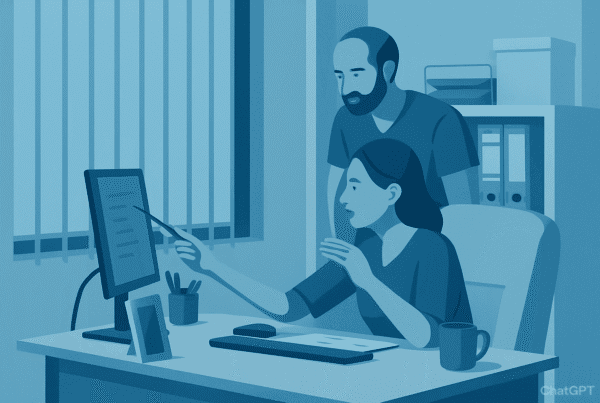For owners of Orthopedic & Post-Surgical Rehab practices, the Rhode Island market presents a unique moment. The landscape is defined by accelerated consolidation and significant private equity interest, creating both opportunities and new complexities for those considering a sale. This guide provides a clear overview of the current environment, what buyers are looking for, and how to strategically prepare your practice to achieve its maximum value in a transaction.
Market Overview
As a practice owner in Rhode Island, you are likely witnessing a significant shift in the healthcare landscape. The era of the standalone practice is evolving. This change is driven by a powerful trend: market consolidation.
The Rise of Consolidation
Independent Orthopedic & Post-Surgical Rehab practices are increasingly being acquired by larger organizations. This trend is fueled by the pursuit of operational efficiencies, expanded service networks, and greater negotiating power with payers. For practice owners, this means the competitive environment is changing, but it also creates a strong seller’s market where well-run practices are in high demand.
Who Is Buying?
The buyers in Rhode Island are not a single group. They generally fall into two main categories: large, established healthcare systems looking to broaden their continuum of care, and sophisticated private equity (PE) groups building regional or national platforms. Each buyer type has different goals and approaches the acquisition process differently.
Key Considerations
Thinking about a sale in 2-3 years? The preparation should start now. Buyers pay for proven success, not just potential. The most critical step you can take is to get your practice ready for the intense scrutiny of due diligence. This is where buyers verify every aspect of your business, from financial records to regulatory compliance. Beyond clean books, they are looking for qualitative strengths specific to your field. In Orthopedic & Post-Surgical Rehab, this means having well-documented patient outcomes, established and effective rehabilitation protocols, and a strong referral network. These are the factors that prove your practice’s value and sustainability long after you have transitioned out.
Market Activity
The healthcare M&A market has been robust, and physician practices are a focal point of this activity. For an Orthopedic & Post-Surgical Rehab practice in Rhode Island, this translates into a diverse and motivated pool of potential buyers. Understanding their motivations is key.
Here are the primary groups acquiring practices like yours:
1. Large Healthcare Systems: These buyers want to integrate your rehab services into their broader patient care network. They are often focused on geographic coverage and ensuring a seamless patient journey from surgery to recovery.
2. Private Equity Groups: PE firms see the rehab space as a growing, non-cyclical industry. They aim to build a larger platform by acquiring several practices, professionalizing operations, and creating value through scale. They often bring significant business expertise.
3. Expanding Local Practices: Sometimes your buyer is a competing or complementary practice in the region looking to expand their footprint, add providers, or enter a new sub-specialty.
Sale Process
Selling your practice is not a single event. It’s a structured process that unfolds over months. It begins long before a buyer is ever contacted, with the crucial preparation of your financial and operational documents. Once prepared, the next phase involves confidentially identifying and approaching a curated list of potential buyers to create a competitive environment. This leads to receiving initial offers, followed by negotiations and the selection of a final partner. The last stage is the formal due diligence and legal closing. A professionally managed process ensures you maintain control, protect confidentiality, and prevent the common challenges that can arise and derail a deal.
Valuation
A common question we hear is, “What is my practice worth?” The answer is more than a simple number. Sophisticated buyers value your practice based on its Adjusted EBITDA, which represents your true, sustainable cash flow. They then apply a multiple to that number. While many owners focus on the multiple, the real value is created by first maximizing your Adjusted EBITDA and then demonstrating the quality of your practice.
| Valuation Driver | Why It Matters to a Buyer |
|---|---|
| Adjusted EBITDA | This is the true profitability after normalizing for owner-specific expenses. |
| Provider Reliance | A practice that can thrive without its owner is seen as less risky and more valuable. |
| Growth Profile | Buyers will pay a premium for a clear, believable path to future growth. |
| Payer Mix | A healthy mix of stable, in-network insurance contracts signals predictable revenue. |
Understanding these drivers is the first step toward understanding, and increasing, your practice’s true market value.
Post-Sale Considerations
The final sale price is only part of the story. How the deal is structured has massive implications for your after-tax proceeds, your future role, and your legacy. Will you leave immediately or continue practicing for a few years? Will you retain equity in the new, larger company, giving you a chance at a “second bite of the apple” when it sells again? How will your long-time staff be treated during the transition? These are not afterthoughts. They are critical deal points that must be negotiated from a position of strength. Planning for your life after the sale is just as important as planning for the sale itself.
Frequently Asked Questions
What is driving the consolidation trend in the Rhode Island Orthopedic & Post-Surgical Rehab market?
The consolidation trend is driven by the pursuit of operational efficiencies, expanded service networks, and greater negotiating power with payers, leading to independent practices being acquired by larger organizations.
Who are the main types of buyers interested in Orthopedic & Post-Surgical Rehab practices in Rhode Island?
The primary buyers include large healthcare systems looking to broaden their continuum of care, private equity groups building regional or national platforms, and expanding local practices seeking to increase their footprint or add specialties.
What are key financial and operational factors buyers scrutinize during due diligence for these practices?
Buyers focus on well-documented patient outcomes, established rehabilitation protocols, strong referral networks, clean financial records, regulatory compliance, and Adjusted EBITDA which represents sustainable cash flow.
How should an owner prepare their Orthopedic & Post-Surgical Rehab practice for sale?
Preparation should start years in advance and include improving financial documentation, demonstrating proven success through patient outcomes, building a strong referral network, and ensuring operational efficiency to pass intense due diligence.
What post-sale considerations should practice owners keep in mind?
Owners should consider their future role in the practice, potential equity retention in the new company, treatment of their staff during transition, tax implications, and how the deal structure impacts their long-term personal and financial goals.



